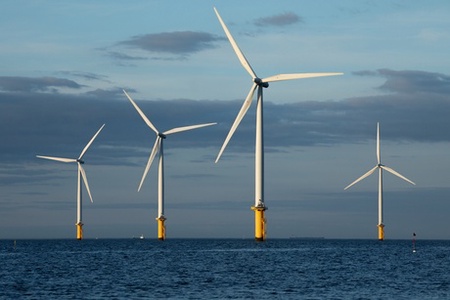Scientists from the University of Aberdeen (UoA) and North Highland College's Environmental Research Institute, part of the University of the Highlands and Islands, will lead a new project to determine where offshore wind developments should be located in order to better protect marine life in the future.
The three-year project, PREDICT (Predicting seasonal movement of marine top predators using fish migration routes and autonomous platforms) has received £800K funding from Ørsted, the global leader in offshore wind, and is a collaboration between the University of Aberdeen and North Highland College UHI’s Environmental Research Institute.
The research will address knowledge gaps in offshore wind environmental characterisation, by improving understanding of fish migration patterns and providing a vision for next-generation monitoring techniques.
Led by Professor Beth Scott (UoA) and Dr Benjamin Williamson (Environmental Research Institute), the PREDICT project will see scientists working closely with industry across a range of multi-disciplinary research themes, spanning ecology, engineering and data analysis. The project will investigate fish migration and how predictions of oceanographic changes to productive regions in time and space may be impacted by climate change, and knock-on effects on top predators (seabirds and marine mammals). PREDICT will support and accelerate development of strategic prediction, survey and analysis methods, so that industry can avoid using locations that have a higher likelihood of overlap with important feeding grounds for seabirds and marine mammals for offshore wind developments now and into the future.
Professor Beth Scott said: “This is a very exciting project that brings a proactive approach to determining the reasons why some locations in our seas may be safer to use for wind farm developments than others. The project will dive straight into the ecological mechanisms that make fish available as prey to seabirds and mammals such that we can better predict where mobile animals will choose to forage now and into a future driven by climate change. It is highly significant to see Ørsted encouraging and supporting such strategic science for the good of the entire sector.”
Read the full article here.


